The 3rd Bioscience and Biotechnology International Symposium - Innovative Approaches to Biological Systems: Light, Motion, and Small Molecules - took place on January 14 at Suzukake Hall on Tokyo Tech's Suzukakedai Campus. The Graduate School of Bioscience and Biotechnology (SBB) and the Education Academy of Computational Life Sciences (ACLS) jointly sponsored the symposium.
Spurred by the 20th anniversary of the SBB, the Bioscience and Biotechnology International Symposium was initiated in 2012 to provide an outstanding environment for young researchers to:
- 1.
- Experience world-class science at an early stage.
- 2.
- Be exposed to featured interdisciplinary topics.
- 3.
- Learn from internationally active researchers.
For the 2014 symposium, we invited two speakers from abroad, three from Japan, and two from Tokyo Tech. The speakers gave presentations on basic bioscience research conducted from innovative perspectives, and cutting-edge research that applies that basic bioscience research.
In the first session, Professor Klaas J. Hellingwerf from the University of Amsterdam and Professor Hiroyuki Ohta from SBB, Tokyo Tech introduced cutting-edge research on cytoarchitecture, which pursues the efficient production of useful substances such as saccharides and fats.
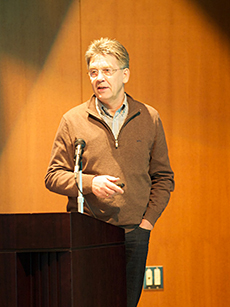
Professor Hellingwerf
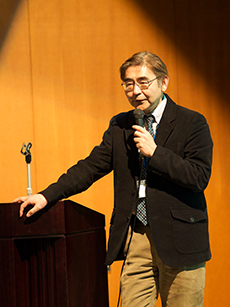
Professor Ohta
In the second session, Professor Jaebum Choo from Hanyang University, Professor Hidehiko Nakagawa from Nagoya City University, and Professor Masaaki Wachi from SBB, Tokyo Tech introduced a new technology being developed for the discovery of tumor markers, the detection of cell functions, and efficient drug screening.
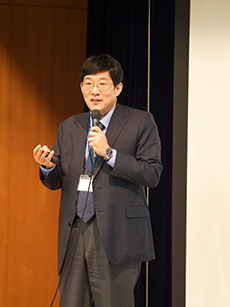
Professor Choo
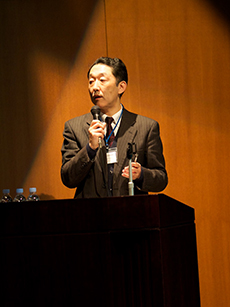
Professor Nakagawa
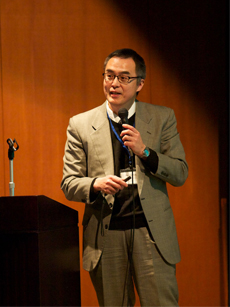
Professor Wachi
In the last session, Professor Masanori Matsuzaki of the National Institute for Basic Biology and Professor Hiroyuki Noji from the University of Tokyo gave presentations on cutting-edge experiment technology and research methods that allow the analysis of cranial nerves and single-molecule analysis of proteins.
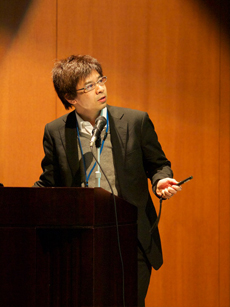
Professor Matsuzaki
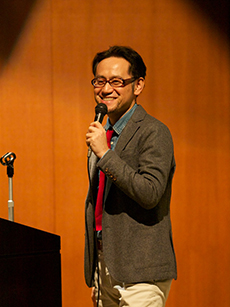
Professor Noji
Cutting-edge research often involves combinations, such as science and engineering, basic and applied knowledge, and micro and macro scale perspectives. This symposium provided participants with the opportunity to understand this.
Attracting 269 participants, the success of this symposium was equal to the two previous ones. The Bioscience and Biotechnology International Symposium Committee continues organizing high-quality international symposiums with a special focus on providing young graduate students and researchers opportunities for interactions with world-class researchers.
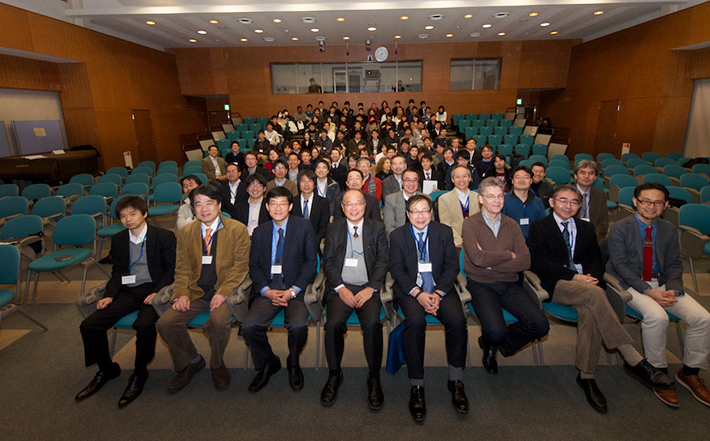 Group photo after the symposium
Group photo after the symposium
. Any information published on this site will be valid in relation to Science Tokyo.










